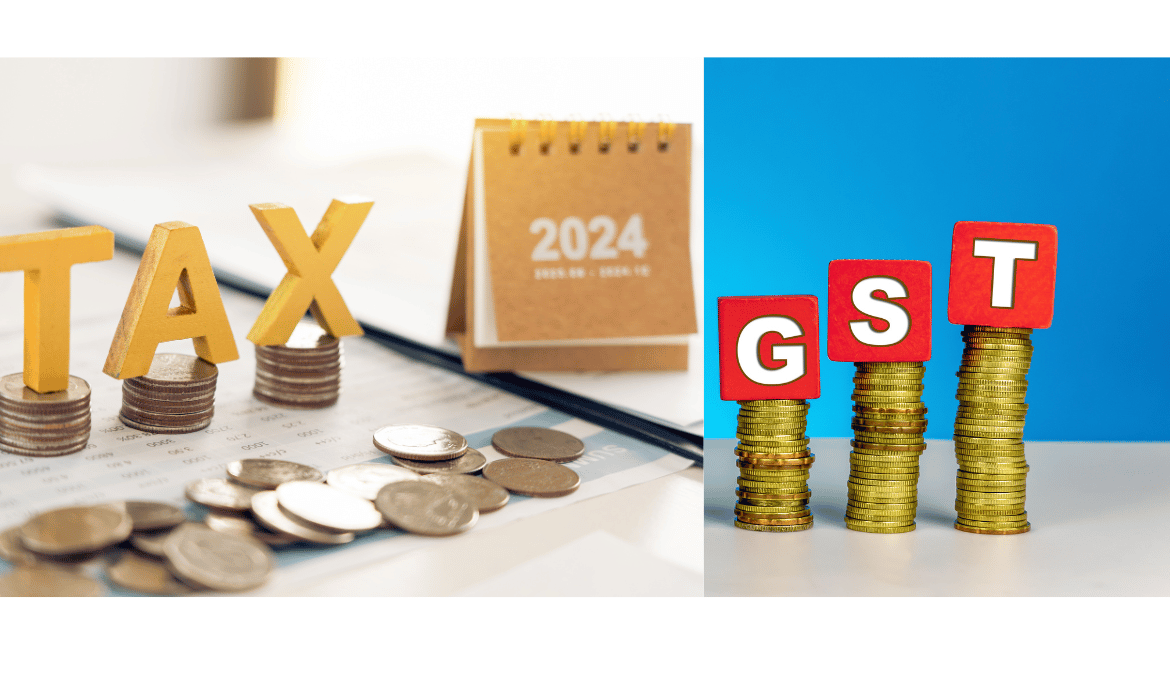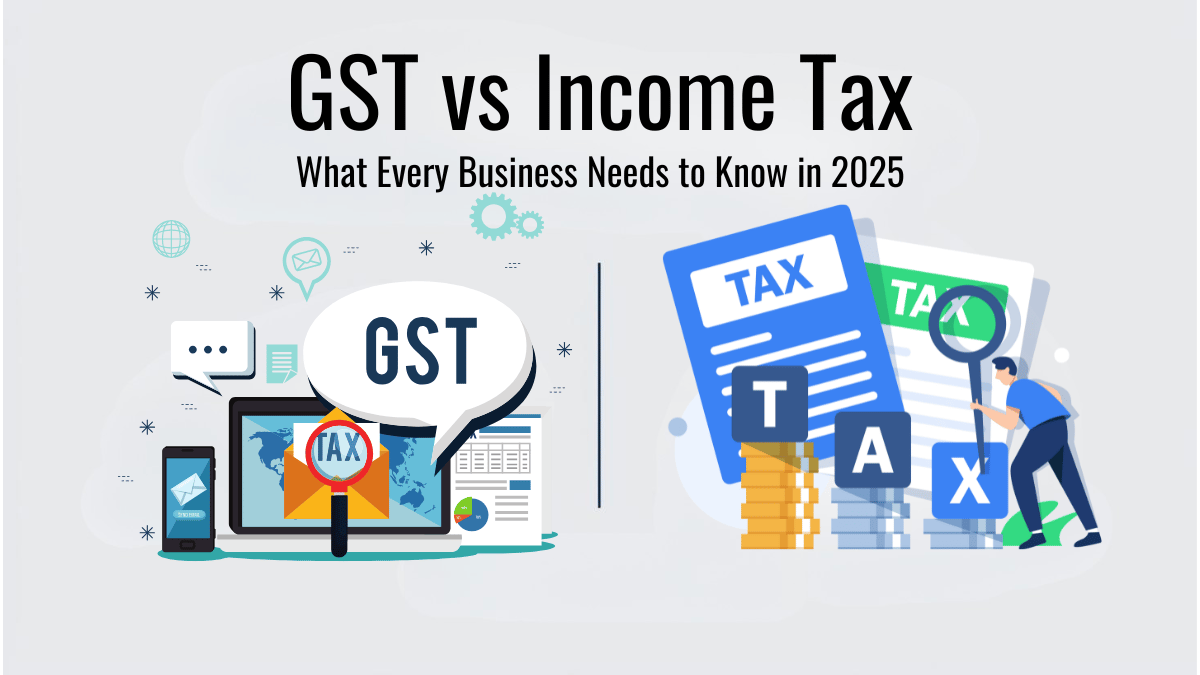GST vs Income Tax:
Taxation is a crucial aspect of running a business in India. Two of the most common taxes that businesses must deal with are GST (Goods and Services Tax) and Income Tax. While both are essential, they serve different purposes and apply differently. In this guide, we will break down GSThttps://www.taxunplug.com/services/ vs Income Tax to help you understand their key differences, applicability, and impact on your business in 2025.
What is GST?
GST (Goods and Services Tax) is an indirect tax levied on the supply of goods and services. It replaced multiple indirect taxes such as VAT, service tax, and excise duty. GST is a consumption-based tax collected at every stage of the supply chain and ultimately borne by the consumer.
Key Features of GST:
- GST is levied at multiple stages but with an input tax credit mechanism.
- It is applicable to businesses involved in manufacturing, trading, and services.
- The standard GST slabs in India are 5%, 12%, 18%, and 28%.
- Businesses with a turnover exceeding 40 lakh in case of goods and Rs. 20 lakh in case of services (For special category group, the limit will be Rs. 20 lakh and Rs. 10 lakh respectively) must register for GST.
- GST returns must be filed monthly, quarterly, or annually, depending on the business category.
What is Income Tax?
Income Tax is a direct tax imposed on the earnings of individuals and businesses. It is paid on income earned by an individual and on net profit in case of businesses.
Key Features of Income Tax:
- It applies to individuals, businesses, companies, and partnerships.
- The tax rates vary based on the entity type (e.g., individual slabs differ from corporate tax rates).
- Income Tax Return (ITR) has to be filed filing annually.
- Certain deductions and exemptions under Section 80C, 80D, and 10(10D) help reduce tax liability.
- The corporate tax rate for domestic companies in India is 22% (with certain conditions).
GST vs Income Tax: Key Differences
| Feature | GST (Goods and Services Tax) | Income Tax |
| Type of Tax | Indirect Tax | Direct Tax |
| Applicability | Applies to goods & services transactions | Applies to net profit or income |
| Who Pays? | Paid by end user or consumers, collected by businesses | Paid by businesses & individuals |
| Filing Frequency | Monthly, Quarterly, Annually | Annually |
| Exemptions Available | Limited to basic necessities | Various deductions under IT Act |
Which Tax Does Your Business Need to Pay?
- If you sell goods or provide services, you must register for GST if your turnover exceeds the prescribed limit.
- If your business earns a profit, you must pay Income Tax based on your net earnings.
Hence business need to pay both taxes.
Tax Compliance Tips for 2025
- Stay Updated with Tax Laws – GST and Income Tax laws are updated frequently. Regular compliance is crucial.
- Maintain Proper Records – Keep track of invoices, expenses, and financial statements to avoid penalties.
- File Returns on Time – Late filing can lead to penalties and interest charges.
- Seek Professional Help – Consult a tax expert or chartered accountant to optimize tax savings.
- Use Digital Tools – Leverage GST and income tax filing software for seamless compliance.
- Follow taxunplug on any of below social platforms for regular updates:
- LinkedIn: https://www.linkedin.com/company/taxunplug/
- Instagram: https://www.instagram.com/taxunplug?igsh=MWsycDMxZzNoaDV0aQ==
- Twitter: https://x.com/taxunplug1?s=11&t=c7XQdmEnWWaJUaipvBpCLQ
- Youtube: https://youtube.com/@Taxunplug?si=ed9rPMekJkcYEg1S
- Facebook: https://www.facebook.com/taxunplug?sfnsn=wiwspmo&mibextid=RUbZ1f
- Whatsapp: https://chat.whatsapp.com/Cn78oJCgCY8AUsgwd4K4fb
FAQs on GST vs Income Tax
1. Can a business be liable for both GST and Income Tax?
Yes, if your business supplies goods/services (GST) and earns a profit (Income Tax), you must comply with both.
2. What happens if a business does not file GST returns?
Non-filing of GST returns can result in late fees, interest, and legal action from the tax department.
3. Are freelancers required to pay GST and Income Tax?
Freelancers must pay Income Tax on earnings and GST if their income exceeds Rs. 20 lakh annually.
4. Can businesses claim GST as an expense in Income Tax?
GST paid on purchases can be claimed as an input tax credit, but it is not deductible as an expense in Income Tax calculations.
5. What is the penalty for not filing Income Tax Returns?
Late filing of ITR can result in penalties up to Rs. 5,000 and interest on unpaid tax amounts.
Final Thoughts

Understanding the difference between GST vs Income Tax is essential for business owners in India. Ensuring timely compliance will help you avoid penalties and streamline financial operations. Keep track of GST returns and Income Tax filings to run a legally compliant and profitable business in 2025. With Tanunplug, you can focus on your business growth while we will handle all you compliances in relation to GST and Income tax. The information provided in above blog is for general informational only and should not be considered as legal or tax advice. Request you to please follow latest updated in reference to above details. We advise to consult with a qualified tax professional such as “Taxunplug” for all your tax needs.

